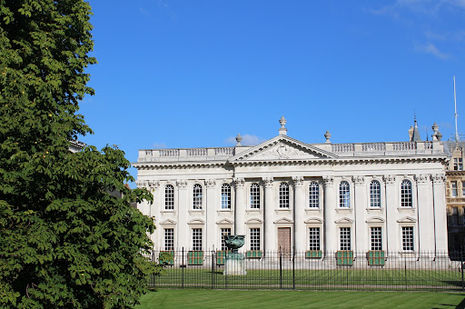Four Cambridge researchers recognised in the 2022 Breakthrough Prizes
Cambridge academics have won prizes worth over US $3 million in Life Sciences, Fundamental Physics, and Mathematics

Four Cambridge researchers - Professors Shankar Balasubramanian, David Klenerman, Suchitra Sebastian, and Jack Thorne - have been recognised in the 2022 Breakthrough Prizes, which were announced last Thursday (09/09).
Launched 10 years ago by Sergey Brin, Priscilla Chan and Mark Zuckerberg, Julia and Yuri Miller, and Anne Wojcicki, the Breakthrough Prizes are awarded annually for outstanding scientific work in three disciplines: Life Sciences, Fundamental Physics, and Mathematics. They are the most lucrative awards in science, with each prize worth US $3 million.
The Breakthrough Prize Board also presents New Horizons Prizes of US $100,000 each to young researchers who have already made major contributions to their fields.
Professors Shankar Balasubramanian and David Klenerman of the Yusuf Hamied Department of Chemistry share the Breakthrough Prize in Life Sciences with Pascal Mayer of the French company Alphanosos for their work in “the development of a robust and affordable method to determine DNA sequences on a massive scale, which has transformed the practice of science and medicine.”
In the year 2000, sequencing one human genome took 10 years and cost over a billion dollars. Thanks to the technology invented by Balasubramanian and Klenerman, the human genome can today be sequenced in a single day and at a cost of under $1,000.
This kind of rapid genome sequencing enabled the identification and characterisation of the virus which causes COVID-19, real-time monitoring of new variants, and the swift development of vaccines.
Professor Balasubramanian said: “The impact and breadth of utility of this technology has gone way beyond my imagination, and it’s still in its infancy.”
Professor Suchitra Sebastian of the Cavendish Laboratory won the New Horizons in Physics Prize for “high precision electronic and magnetic measurements that have profoundly changed our understanding of high temperature superconductors and unconventional insulators.”
Sebastian said: “Being awarded the New Horizons Prize is incredibly encouraging, uplifting and joyous. It recognises a discovery made by our team of electrons doing what they're not supposed to do.
“It's gone from the moment of elation and disbelief at the discovery, and then trying to follow it through, when no one else quite thinks it’s possible or that it could be happening. It’s been an incredible journey, and having it recognised in this way is incredibly rewarding.”
Professor Jack Thorne won the New Horizons in Mathematics Prize for “transformative contributions to diverse areas of algebraic number theory, and in particular for the proof, in collaboration with James Newton, of the automorphy of all symmetric powers of a holomorphic modular newform.”
Thorne said: "I am deeply honoured to be awarded the New Horizons Prize for my work in number theory. Number theory is a subject with a rich history in Cambridge and I feel very fortunate to be able to make my own contribution to this tradition."
 News / Hundreds of Cambridge academics demand vote on fate of vet course20 February 2026
News / Hundreds of Cambridge academics demand vote on fate of vet course20 February 2026 News / Judge Business School advisor resigns over Epstein and Andrew links18 February 2026
News / Judge Business School advisor resigns over Epstein and Andrew links18 February 2026 News / Petition demands University reverse decision on vegan menu20 February 2026
News / Petition demands University reverse decision on vegan menu20 February 2026 News / CUCA members attend Reform rally in London20 February 2026
News / CUCA members attend Reform rally in London20 February 2026 News / Caius students fail to pass Pride flag proposal20 February 2026
News / Caius students fail to pass Pride flag proposal20 February 2026











